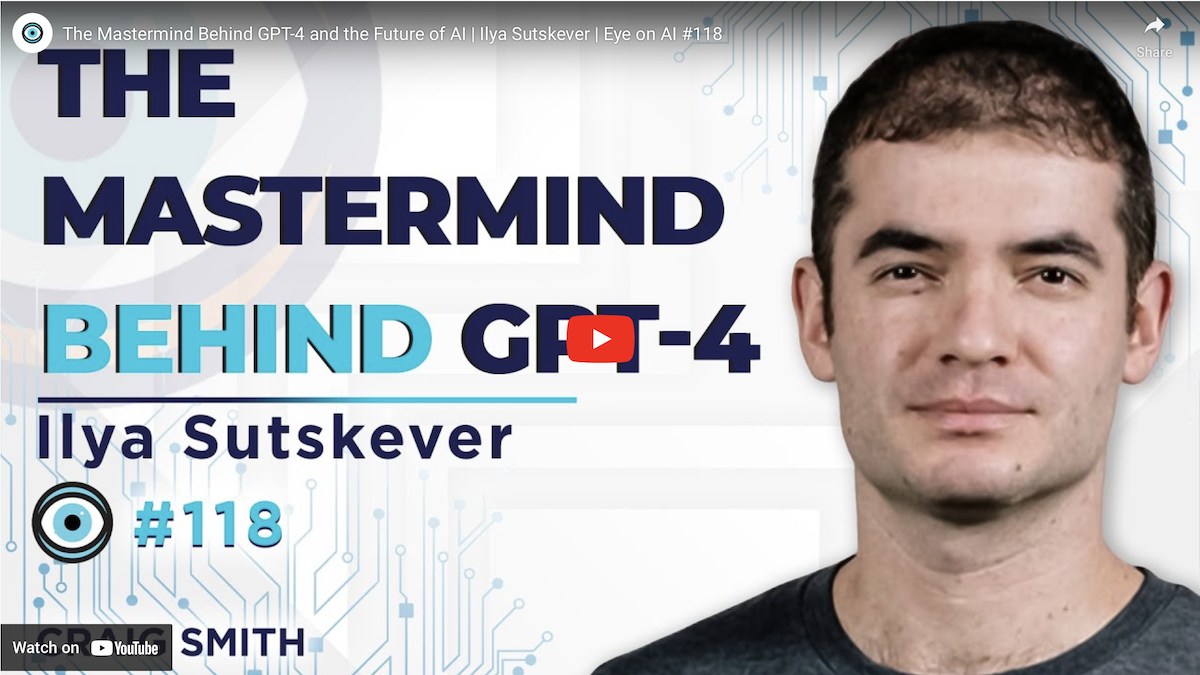“Every neural network represents words sentences, concepts, through representations, embeddings, high dimensional vectors… I claim that our pre-trained models already know everything they need to know about the underlying reality. They already have this knowledge of language and also a great deal of knowledge about the processes that exist in the world that produce this language. And maybe I should reiterate this point it’s a small tangent but I think it’s so important. The thing that large generative models learn about their data and in this case large language models about Text data are some compressed representations of the real world processes that produce this data which means not only people and something about their thoughts something about their feelings but also something about the condition that people are in and the interactions that exist between them the different situations a person can be all of these are part of that compressed process that is represented by the neural net to produce the text. The better the language model the better the generative model the higher the Fidelity the more the better this the better it captures this process so that’s the first comment that we make and so in particular I will say the models already have the knowledge.” 1732
The Mastermind Behind GPT-4 and the Future of AI | Ilya Sutskever | Eye on AI #118
In this podcast episode, Ilya Sutskever, the co-founder and chief scientist at OpenAI, discusses his vision for the future of artificial intelligence (AI), including large language models like GPT-4. Sutskever starts by explaining the importance of AI research and how OpenAI is working to advance the field. He shares his views on the ethical considerations of AI development and the potential impact of AI on society. The conversation then moves on to large language models and their capabilities. Sutskever talks about the challenges of developing GPT-4 and the limitations of current models. He discusses the potential for large language models to generate a text that is indistinguishable from human writing and how this technology could be used in the future. Sutskever also shares his views on AI-aided democracy and how AI could help solve global problems such as climate change and poverty. He emphasises the importance of building AI systems that are transparent, ethical, and aligned with human values. Throughout the conversation, Sutskever provides insights into the current state of AI research, the challenges facing the field, and his vision for the future of AI. This podcast episode is a must-listen for anyone interested in the intersection of AI, language, and society. Timestamps:
- 00:04 Introduction of Craig Smith and Ilya Sutskever.
- 01:00 Sutskever’s AI and consciousness interests.
- 02:30 Sutskever’s start in machine learning with Hinton.
- 03:45 Realization about training large neural networks.
- 06:33 Convolutional neural network breakthroughs and imagenet.
- 08:36 Predicting the next thing for unsupervised learning.
- 10:24 Development of GPT-3 and scaling in deep learning.
- 11:42 Specific scaling in deep learning and potential discovery.
- 13:01 Small changes can have big impact.
- 13:46 Limits of large language models and lack of understanding.
- 14:32 Difficulty in discussing limits of language models.
- 15:13 Statistical regularities lead to better understanding of world.
- 16:33 Limitations of language models and hope for reinforcement learning.
- 17:52 Teaching neural nets through interaction with humans.
- 21:44 Multimodal understanding not necessary for language models.
- 25:28 Autoregressive transformers and high-dimensional distributions.
- 26:02 Autoregressive transformers work well on images.
- 27:09 Pixels represented like a string of text.
- 29:40 Large generative models learn compressed representations of real-world processes.
- 31:31 Human teachers needed to guide reinforcement learning process.
- 35:10 Opportunity to teach AI models more skills with less data.
- 39:57 Desirable to have democratic process for providing information.
- 41:15 Impossible to understand everything in complicated situations.
- Craig Smith Twitter: https://twitter.com/craigss
- Eye on A.I. Twitter: https://twitter.com/EyeOn_AI


